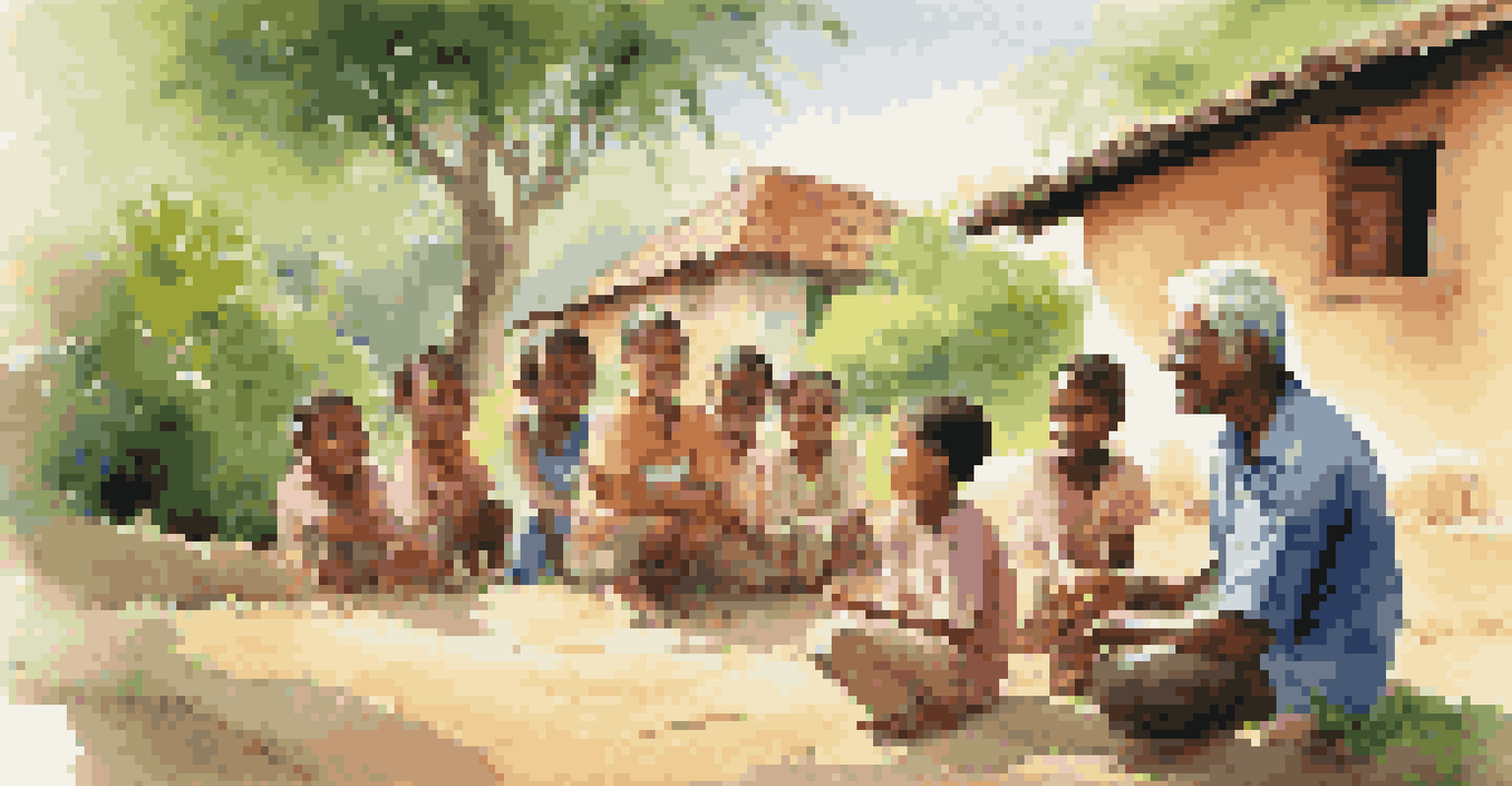Volunteer Travel: A Guide to Ethical Volunteering

Understanding Volunteer Travel: What It Means
Volunteer travel combines exploring new places with giving back to communities in need. It allows individuals to immerse themselves in different cultures while making a positive impact. However, it’s essential to understand the responsibilities that come with this type of travel.
The best way to find yourself is to lose yourself in the service of others.
When you choose to volunteer abroad, you are not just a tourist; you become part of a community. This means respecting local customs, traditions, and the environment. It’s important to approach your volunteer experience with an open mind and a willingness to learn.
Ultimately, volunteer travel should leave both you and the community better off. This requires a commitment to ethical practices and a genuine desire to contribute meaningfully.
Why Ethical Volunteering Matters
Ethical volunteering ensures that the help provided genuinely benefits the community. It avoids exploitative practices that can arise when volunteer programs prioritize profit over people. Understanding this distinction is crucial for responsible travel.

When volunteering ethically, organizations should prioritize local needs and involve community members in decision-making. This fosters sustainable development and empowers locals rather than creating dependency. It’s about strengthening communities, not just providing temporary fixes.
Volunteer Travel's Dual Purpose
Volunteer travel allows individuals to explore new cultures while making a positive impact on local communities.
Additionally, ethical volunteering helps protect the integrity of the volunteer experience. When travelers engage responsibly, they help promote a positive image of volunteerism, encouraging others to participate in meaningful ways.
Choosing the Right Volunteer Program
Selecting a volunteer program can be overwhelming with so many options available. It’s essential to research organizations thoroughly to ensure they align with ethical practices. Look for programs that are transparent about their operations and impact.
Volunteering is not a choice, it is a responsibility we owe to our communities.
Consider seeking programs that are locally run or partner with local organizations. This often leads to a more authentic experience and ensures that your efforts contribute directly to the community. Reading reviews and testimonials can also provide valuable insights.
Don’t hesitate to ask questions before committing. Inquire about how funds are used, the types of projects available, and the level of community involvement. A reputable organization will be happy to provide this information.
Preparing for Your Volunteer Trip
Preparation is key to ensuring a successful volunteer experience. Start by familiarizing yourself with the culture and customs of the destination. This not only shows respect but also helps you adapt more easily upon arrival.
Packing wisely is also important; bring items that may be needed in the community or that support local businesses. Additionally, consider any necessary vaccinations or travel insurance to protect your health and safety during your trip.
Importance of Ethical Practices
Engaging in ethical volunteering ensures that efforts genuinely benefit the community and promote sustainable development.
Lastly, set realistic expectations for your volunteering role. Understand that meaningful change often takes time, and your contribution, while valuable, is just one piece of a larger puzzle.
Cultural Sensitivity in Volunteer Work
Cultural sensitivity is crucial when volunteering abroad. Every community has its unique way of life, and approaching it with respect and curiosity can foster positive relationships. Remember, you are there to learn and support, not to impose your beliefs.
Engaging with locals and listening to their stories can provide invaluable insights into the community's needs and strengths. This understanding can enhance your volunteer work, making it more relevant and impactful.
Being open to feedback and adapting to local customs can also enrich your experience. It's about creating a two-way exchange that honors both your contributions and the community's values.
The Impact of Your Volunteer Efforts
The impact of your volunteer work can be profound, both for the community and for your personal growth. While you may go to help others, you often return with new perspectives and skills. This transformation is a testament to the power of volunteer travel.
Measuring the impact can be challenging, but consider the relationships built and the changes witnessed during your stay. These connections often become lasting partnerships that continue to benefit the community long after you leave.
Ongoing Support After Volunteering
Continuing to support the community after returning home enhances the impact of your volunteer efforts and inspires others.
Moreover, sharing your experiences with others can inspire more people to engage in ethical volunteering. Your stories can motivate friends and family to consider how they can make a difference, creating a ripple effect of positive change.
Continuing Your Support After the Trip
Volunteering doesn’t have to end when you return home. There are many ways to continue supporting the community you worked with, such as fundraising or spreading awareness about their needs. This ongoing commitment can strengthen the impact of your initial efforts.
Consider staying connected with the organization or community members through social media or email. This can help you keep up with their progress and find new ways to contribute, whether through skills sharing or advocacy.

Finally, reflect on your experiences and share them with others. Whether through blog posts, social media, or community talks, discussing your journey can educate and inspire others to think about their role in ethical volunteering.